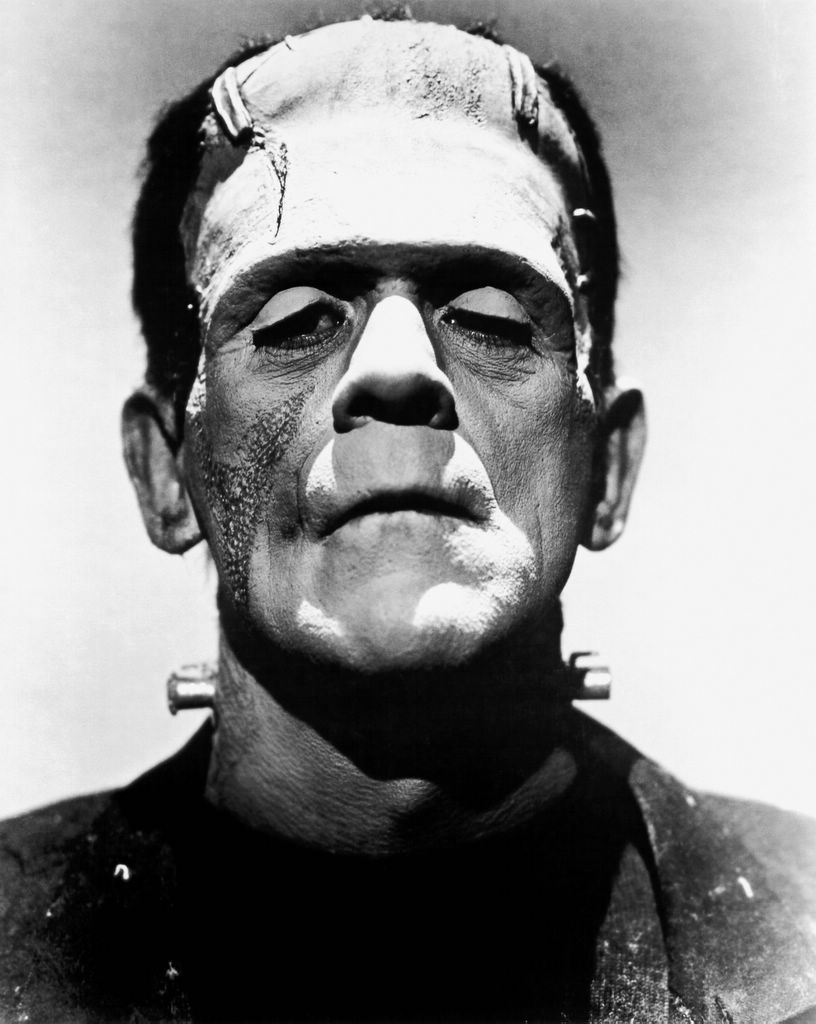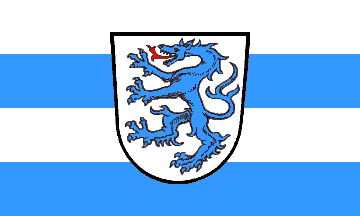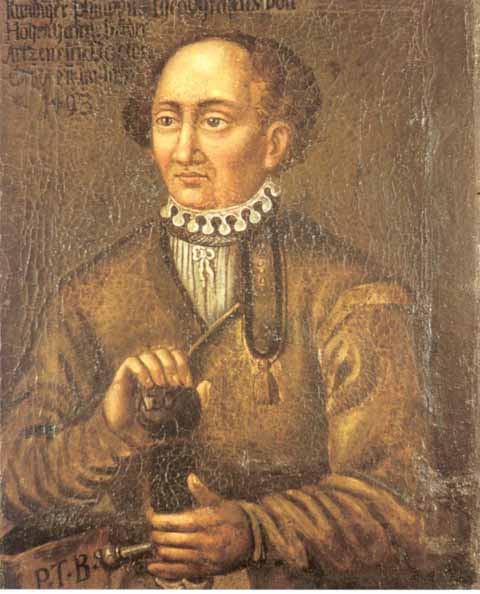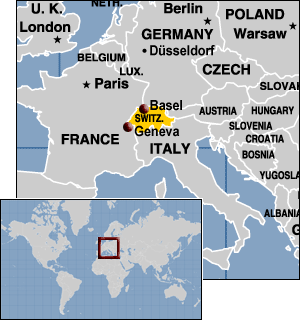". . . I was possessed by a kind of nightmare. I felt the feind's grasp in my neck, and could not free myself from it; groans and cries rung in my ears." (145)
Some say a nightmare is "A demon or spirit once thought to plague sleeping people." (http://www.answers.com/topic/nightmare) Victor's life was taken over by the monster in the way that all he could think about how much destruction the creature he created was causing. Mary Shelley uses this event to foreshadow Victor's death. Although the creature did not directly or physicly kill Victor, he did drive him towards insanity and to his end.
Monday, August 24, 2009
Taking back a promise (Frankenstein)
"Begone! I do break my promise; never will I create another like yourself, equal in deformity and wickedness." (131)
Prior to this event, Victor had agreed to make another creature. This creature would be a companion for Victor's first creation. However, the more he thought about it, the worse and worse his original idea of making another creature seemed preposterous. After the original monster had caused so much trouble and grief, Mary Shelley thought she would spare characters in the novel by refusing to make another one. This enraged the monster and continued to build tension between the two.
Prior to this event, Victor had agreed to make another creature. This creature would be a companion for Victor's first creation. However, the more he thought about it, the worse and worse his original idea of making another creature seemed preposterous. After the original monster had caused so much trouble and grief, Mary Shelley thought she would spare characters in the novel by refusing to make another one. This enraged the monster and continued to build tension between the two.
Sunday, August 23, 2009
Darkness (Frankenstein)
 ". . . depart and leave me in the darkness." (114)
". . . depart and leave me in the darkness." (114)In Frankenstein, light and darkness are both representations of knowledge and the repetition of symbolism shows that Mary Shelley wants to stress this idea. As said earlier, light represents knowledge and power. Darkness is the symbol for all of the unknown and undiscovered. For the monster, his happiness lies in the darkness where it is yet to be discovered.
love/hate (Frankenstein)

"His words had a strange effect upon me. I compassionated him, and sometimes felt a wish to console him; but when I looked upon him, when I saw the filthy mass that moved and talked, my heart sickened, and my feelings were altered to those of horror and hatred." (113)
Deep down, Victor had a soft spot for the monster that he created. At times, he wanted to make the creature feel better and be a friend to him. However, Mary Shelley let the monsters outside appearance change Victor's feelings towards consoling him. The "soft spot" quickly disappeared and the creature was once again rejected and forced to face a life of loneliness.
Deep down, Victor had a soft spot for the monster that he created. At times, he wanted to make the creature feel better and be a friend to him. However, Mary Shelley let the monsters outside appearance change Victor's feelings towards consoling him. The "soft spot" quickly disappeared and the creature was once again rejected and forced to face a life of loneliness.
Looking for love (Frankenstein)
"I am alone, and miserable; man will not associate with me; but one as deformed and horrible as myself would not deny herself to me. My companion must be of the same species, and have the same defects." (110)
A small theme that occurred in the novel was loneliness and the struggle for acceptance and happiness. Victor's monster was never accepted and struggled to try and live a happy life. The monster thought that if Victor could create an identical creature, only the female version, that he would finally achieve happiness. He felt that the only being that would accept him, would be one of his own kind. In the end, May Shelley had it so the monster never achieved happiness and was never truly accepted.
A small theme that occurred in the novel was loneliness and the struggle for acceptance and happiness. Victor's monster was never accepted and struggled to try and live a happy life. The monster thought that if Victor could create an identical creature, only the female version, that he would finally achieve happiness. He felt that the only being that would accept him, would be one of his own kind. In the end, May Shelley had it so the monster never achieved happiness and was never truly accepted.
Wednesday, August 19, 2009
The power of the sun (Frankenstein)
"The pleasant sunshine, and the pure air of day, restored me to some degree of tranquillity;". (104)
In the novel, sunshine or light is a representation of knowledge and power. The significance of this is that knowledge can be a public thing. And like things in the light, they are out in the open to be discovered. Throughout Frankenstein Mary Shelley has Victor take advantage of seeking new knowledge.
In the novel, sunshine or light is a representation of knowledge and power. The significance of this is that knowledge can be a public thing. And like things in the light, they are out in the open to be discovered. Throughout Frankenstein Mary Shelley has Victor take advantage of seeking new knowledge.
God's beauty (Frankenstein)
 "God in pity made man beautiful and alluring, after his own image; but my form is a filthy type of your's, more horrid from its very resemblance." (99)
"God in pity made man beautiful and alluring, after his own image; but my form is a filthy type of your's, more horrid from its very resemblance." (99)Victor is a man of image. He makes it clear to his creature that one of the reasons he is so frightening is because of how he looks. Once the creature is exposed to Victor's idea of a perfect image, it lowers his confidence level as it would for a real human being. Although Mary Shelley refers to Victor's creation as a monster, he has feelings and strong emotions as well.
http://doctorfuckwit.files.wordpress.com/2009/04/karlof-frankenstein.jpg
Mutability (Frankenstein)
"The path of my departure was free". (97)
Victor's creature has also been exposed to a piece of Percy Shelley's work: Mutability. In the poem, there is a similar line: "The path of its departure still is free." The poem speaks about joy and sorrow and how a person may experience either one of those in a lifetime. Later on in the novel, Frankenstein speaks of his unhappiness and sorrow. And also questions why he is so "hideous".
Victor's creature has also been exposed to a piece of Percy Shelley's work: Mutability. In the poem, there is a similar line: "The path of its departure still is free." The poem speaks about joy and sorrow and how a person may experience either one of those in a lifetime. Later on in the novel, Frankenstein speaks of his unhappiness and sorrow. And also questions why he is so "hideous".
Tuesday, August 18, 2009
Looks aren't everything...
 "I had admired the perfect forms of my cottagers---their grace, beauty, and delicate complexions: but how was I terrified, when I viewed myself in a transparent pool!" (84)
"I had admired the perfect forms of my cottagers---their grace, beauty, and delicate complexions: but how was I terrified, when I viewed myself in a transparent pool!" (84)Victor is a man of appearance. Caring too much about his looks, and too much about what others may look like. Instead of seeking the true personality and views of people, Mary Shelley has Victor more concerned with their form. The monster that he creates is frightening to him because it doesn't have a beautiful form, or stunning appearance. The creature is ironic, because it is exactly the opposite of what Victor wanted; He was in seek of the perfect man, and instead created a monster.
The Moon is the Mother

"Soon a gentle light stole over the heavens, and gave me a sensation of pleasure. I started up, and beheld a radiant form rise from among the trees." (75)
The "radiant form" that is mentioned, is the moon. Shelley makes it so the moon is a representation of the mother that Victor and his creature never had. Like a mother, you can always count on the moon to be there; every night you can look up and count on it being there. Since Victor and his creature never had a mother, to them the moon holds that same security and feeling of dependability.
http://antwrp.gsfc.nasa.gov/apod/image/0509/MoonRiver_ouellet_f.jpg
The "radiant form" that is mentioned, is the moon. Shelley makes it so the moon is a representation of the mother that Victor and his creature never had. Like a mother, you can always count on the moon to be there; every night you can look up and count on it being there. Since Victor and his creature never had a mother, to them the moon holds that same security and feeling of dependability.
http://antwrp.gsfc.nasa.gov/apod/image/0509/MoonRiver_ouellet_f.jpg
Sea of ice (Frankenstein)
 "For some time I sat upon the rock that overlooks the sea of ice." (71)
"For some time I sat upon the rock that overlooks the sea of ice." (71)The Sea of ice is one of the most desolate and secluded places in the world. There is absolutely no sign of any life or vegetation. Shelley made the reader feel as though this place was symbolic of Victor's wishes to be alone to reflect.
http://media-cdn.tripadvisor.com/media/photo-s/01/17/2d/2f/mer-de-glace.jpg
Percy Shelley reference (Frankenstein)

"We rest; A dream has power to poison sleep. We rise; One wandering thought pollutes the day. We feel, conceive or reason, laugh or weep, Embrace fond foe, or cast our cares away; It is the same: For, be it joy or sorrow, The path of its departure still is free. Man's yesterday may ne'er be like his morrow; Nought may endure but Mutability!" (71)
Mary Shelley makes a reference to the poem Mutability by Percy Shelley. Rumour has it that part of the reason this poem is included in the novel was to sort of advertise it. Percy Shelley's work was not doing well at this time, and Mary Shelley thought the reference may help out his works. However, I believe the fragment of the poem was for more than advertisement piece. The poem talks about how fast life goes by and how it is ever changing. Throughout Frankenstein there are many changes within Victor as well as his creature, as well as many events along a normal life journey.
"Mutability Analysis Percy Bysshe Shelley : Summary Explanation Meaning Overview Essay Writing Critique Peer Review Literary Criticism Synopsis Online Education." Writing Workshop, or something. Web. 07 Sept. 2009. http://www.eliteskills.com/analysis_poetry/Mutability_by_Percy_Bysshe_Shelley_analysis.php.
Mary Shelley makes a reference to the poem Mutability by Percy Shelley. Rumour has it that part of the reason this poem is included in the novel was to sort of advertise it. Percy Shelley's work was not doing well at this time, and Mary Shelley thought the reference may help out his works. However, I believe the fragment of the poem was for more than advertisement piece. The poem talks about how fast life goes by and how it is ever changing. Throughout Frankenstein there are many changes within Victor as well as his creature, as well as many events along a normal life journey.
"Mutability Analysis Percy Bysshe Shelley : Summary Explanation Meaning Overview Essay Writing Critique Peer Review Literary Criticism Synopsis Online Education." Writing Workshop, or something. Web. 07 Sept. 2009. http://www.eliteskills.com/analysis_poetry/Mutability_by_Percy_Bysshe_Shelley_analysis.php.
Valley of Champounix (Frankenstein)

"My father, who saw the unhappiness that was painted in my face only an exageration of that sorrow which I might naturually feel. . . he now proposed that we should all make an excursion to the valley of Champounix." (68)
The valley of Champounix is the valley that lies near Mont Blanc in France. It is told that Mary and Percy Shelley visited this spot while in the middle of writing Frankenstein. Victor's father suggests they go there to free some built up stress and happiness because it is so surine there. The suriness of the valley of Champounix may also have been the reason why Mary Shelley went there while writing the novel perhaps for inspiration.
"The valley of Chamounix." English Department - University Of Pennsylvania. Web. 07 Sept. 2009. http://www.english.upenn.edu/Projects/knarf/V2notes/valley.html.
Monday, August 17, 2009
Mont Blanc (Frankenstein)
"During the short voyage I saw the lightnings playing on the summit of Mont Blanc in the most beautiful figures." (52)
Mont Blanc is the highest peak in Alps. This peak is significant later on the book when Victor and his monster meet near Mont Blanc. Although at a glance it seems that Victor and the creature he created are polar opposites, they end up having a lot in common. Mary Shelley reveals their love for nature, and meeting near this peak in the Alps illustrates a passion they share. However, Victor goes into the wilderness to escape from all of his troubles while his monster goes out of the public eye to try and soothe his feeling of rejection.
"YouTube - Top of the Mont Blanc." YouTube - Broadcast Yourself. Web. 07 Sept. 2009. http://www.youtube.com/watch?v=g0FoBOCOuhE&NR=1.
Mont Blanc is the highest peak in Alps. This peak is significant later on the book when Victor and his monster meet near Mont Blanc. Although at a glance it seems that Victor and the creature he created are polar opposites, they end up having a lot in common. Mary Shelley reveals their love for nature, and meeting near this peak in the Alps illustrates a passion they share. However, Victor goes into the wilderness to escape from all of his troubles while his monster goes out of the public eye to try and soothe his feeling of rejection.
"YouTube - Top of the Mont Blanc." YouTube - Broadcast Yourself. Web. 07 Sept. 2009. http://www.youtube.com/watch?v=g0FoBOCOuhE&NR=1.
Thursday, August 6, 2009
Frank-hearted (Frankenstein)
". . . she looked so frank-hearted and happy." (44)
Frank-hearted, meaning open-hearted is queite commical. This is Mary Shelley's way of adding some humour and setting a more light-hearted mood.
Frank-hearted, meaning open-hearted is queite commical. This is Mary Shelley's way of adding some humour and setting a more light-hearted mood.
The Rime of the Ancient Mariner (Frankenstein)
"Like one who, on a lonely road, Doth walk in fear and dread, And, having once turned round, walks on, And turns no more his head; Because he knows a frightful fiend Doth close behind him tread." (39)
Mary Shelley makes a reference to the poem The Rime of the Ancient Mariner by Samuel Taylor Coleridge. Victor decides to go on a walk to relieve some stress and to put his mind at rest for a bit. However, the poem shows that Victor simply just can't escape his thoughts: ". . .he knows a frightful fiend Doth close behind him tread." This poem illustrates that no matter what he does, he cannot escape his thoughts of creating something that would seem to be impossible.
"Mary Shelley." C l a r a . n e t - Customer Index. Web. 07 Sept. 2009. http://home.clara.net/heureka/art/shelley.htm.
Mary Shelley makes a reference to the poem The Rime of the Ancient Mariner by Samuel Taylor Coleridge. Victor decides to go on a walk to relieve some stress and to put his mind at rest for a bit. However, the poem shows that Victor simply just can't escape his thoughts: ". . .he knows a frightful fiend Doth close behind him tread." This poem illustrates that no matter what he does, he cannot escape his thoughts of creating something that would seem to be impossible.
"Mary Shelley." C l a r a . n e t - Customer Index. Web. 07 Sept. 2009. http://home.clara.net/heureka/art/shelley.htm.
Tuesday, August 4, 2009
"old familiar faces" (Frankenstein)
". . . these were "old familiar faces". (27)
This was a piece of the poem The Old Familiar Faces by Charles Lamb. Mary Shelley makes this reference about Elizabeth and Clerval right after the death of his mother. This poem really illustrates his loss and feelings of despair.
The Old Familiar Faces by Charles Lamb
"I HAVE had playmates, I have had companions, In my days of childhood, in my joyful school-days-- All, all are gone, the old familiar faces.
The Old Familiar Faces by Charles Lamb
"I HAVE had playmates, I have had companions, In my days of childhood, in my joyful school-days-- All, all are gone, the old familiar faces.
I have been laughing, I have been carousing, Drinking late, sitting late, with my bosom cronies-- All, all are gone, the old familiar faces.
I loved a Love once, fairest among women: Closed are her doors on me, I must not see her-- All, all are gone, the old familiar faces.
I have a friend, a kinder friend has no man: Like an ingrate, I left my friend abruptly; Left him, to muse on the old familiar faces.
Ghost-like I paced round the haunts of my childhood, Earth seem'd a desert I was bound to traverse, Seeking to find the old familiar faces.
Friend of my bosom, thou more than a brother, Why wert not thou born in my father's dwelling? So might we talk of the old familiar faces--
How some they have died, and some they have left me, And some are taken from me; all are departed-- All, all are gone, the old familiar faces. "
"The Old Familiar Faces by Charles Lamb." PoemHunter.Com - Thousands of poems and poets.. Poetry Search Engine. Web. 07 Sept. 2009. http://www.poemhunter.com/poem/the-old-familiar-faces/.
University of Ingolstadt (Frankenstein)
". . . I should become a student at the university of Ingolstadt." (25)
Victor attended the University of Ingolstadt located in the heart of Bavaria, Germany. A secret society called the Illum inati was formed at this school but outlawed in 1785. The Illuminati was a group of students as well as possibly some professors of open-minded, free spirits and radical politics. Mary Shelley made the importance of the school known by making the creation of the monster there.
inati was formed at this school but outlawed in 1785. The Illuminati was a group of students as well as possibly some professors of open-minded, free spirits and radical politics. Mary Shelley made the importance of the school known by making the creation of the monster there.
"University of Ingolstadt." English Department - University Of Pennsylvania. Web. 07 Sept. 2009.http://www.english.upenn.edu/Projects/knarf/V1notes/univers.html.
Victor attended the University of Ingolstadt located in the heart of Bavaria, Germany. A secret society called the Illum
 inati was formed at this school but outlawed in 1785. The Illuminati was a group of students as well as possibly some professors of open-minded, free spirits and radical politics. Mary Shelley made the importance of the school known by making the creation of the monster there.
inati was formed at this school but outlawed in 1785. The Illuminati was a group of students as well as possibly some professors of open-minded, free spirits and radical politics. Mary Shelley made the importance of the school known by making the creation of the monster there."University of Ingolstadt." English Department - University Of Pennsylvania. Web. 07 Sept. 2009.http://www.english.upenn.edu/Projects/knarf/V1notes/univers.html.
Comte de Buffon (Frankenstein)

". . . although I still read Pliny and Buffon with delight, authors, in my estimation, of nearly equal interest and utility." (24)
Buffon, aka Comte de Buffon was a French naturalist and mathematician. Known for "Buffon's needle", he introduced calculus and probability to the world. Although he may not have been named as a biologist, he brought many new ideas to this field. Buffon greatly influenced Percy Shelley. Percy alluded to Buffon's theory of "human race" in a letter to a life long friend. "Human race" was also included in the last letter to Mary Shelley's History of a Six Week's Tour.
"Buffon biography." MacTutor History of Mathematics. Web. 07 Sept. 2009. http://www-history.mcs.st-andrews.ac.uk/Biographies/Buffon.html.
http://www.english.upenn.edu/Projects/knarf/Buffon/buffon.html
Buffon, aka Comte de Buffon was a French naturalist and mathematician. Known for "Buffon's needle", he introduced calculus and probability to the world. Although he may not have been named as a biologist, he brought many new ideas to this field. Buffon greatly influenced Percy Shelley. Percy alluded to Buffon's theory of "human race" in a letter to a life long friend. "Human race" was also included in the last letter to Mary Shelley's History of a Six Week's Tour.
"Buffon biography." MacTutor History of Mathematics. Web. 07 Sept. 2009. http://www-history.mcs.st-andrews.ac.uk/Biographies/Buffon.html.
http://www.english.upenn.edu/Projects/knarf/Buffon/buffon.html
Chimera (Frankenstein)

". . . they know that metals cannot be transmuted, and that the elixir of life is a chimera." (29)
A chimera can be one of two things: a fire breathing goat-lion or a fabrication of the mind. In this situation, Victor's professor is telling him that all of the books he has been reading and researching are imaginary. Shelley later explains how men like Agrippa were merely fools. It is the chemists who discover the wonders of reality. The significance of this word is that although most people believe things like the elixir of life and the philosopher's stone to be made up, Victor still has faith and "dreams . . .undisturbed by reality. . ." (23) His imagination is what made him able to do what he did (creating a monster).
"Chimera - Definition from the Merriam-Webster Online Dictionary." Dictionary and Thesaurus - Merriam-Webster Online. Web. 07 Sept. 2009. http://www.merriam-webster.com/dictionary/chimera.
http://images.elfwood.com/art/p/o/ponzetti/chimera3sm.jpg
A chimera can be one of two things: a fire breathing goat-lion or a fabrication of the mind. In this situation, Victor's professor is telling him that all of the books he has been reading and researching are imaginary. Shelley later explains how men like Agrippa were merely fools. It is the chemists who discover the wonders of reality. The significance of this word is that although most people believe things like the elixir of life and the philosopher's stone to be made up, Victor still has faith and "dreams . . .undisturbed by reality. . ." (23) His imagination is what made him able to do what he did (creating a monster).
"Chimera - Definition from the Merriam-Webster Online Dictionary." Dictionary and Thesaurus - Merriam-Webster Online. Web. 07 Sept. 2009. http://www.merriam-webster.com/dictionary/chimera.
http://images.elfwood.com/art/p/o/ponzetti/chimera3sm.jpg
Sunday, August 2, 2009
Stepping back... (Frankenstein)
So far while looking into Frankenstein even deeper, there has been many connections with Harry Potter which I found to be extremely interesting. For example not only the haunting black dog of Cornelius Agrippa, but also the elixir of life as well as the philosopher's stone. How are these things connected? Another name for the book Harry Potter and the Sorcerer's Stone is Harry Potter and the Philosopher's Stone.
Philosopher's Stone (Frankenstein)

My dreams were therefore undisturbed by reality; and I entered with the greatest diligence into the search of philosopher's stone and the elixir of life." (23)
The philosopher's stone is believed to change regular metals into gold. Also linked to the elixir of life, it was possible that the philosopher's stone and elixir of life would together achieve immortality. Mary Shelley talks about Victor Frankenstein's dreams "undisturbed by reality", meaning that he was able to believe many things dreamed up by alchemists. Although Frankenstein was not searching for a stone, what he was searching for had a similar concept; Something that could change the dead into a living being.
"Philosophers Stone, Alchemy - Crystalinks." Crystalinks Metaphysical and Science Website. Web. 07 Sept. 2009. http://www.crystalinks.com/philosopherstone.html.
http://www.cabiz.net/heartlink/philosopherstone.gif
The philosopher's stone is believed to change regular metals into gold. Also linked to the elixir of life, it was possible that the philosopher's stone and elixir of life would together achieve immortality. Mary Shelley talks about Victor Frankenstein's dreams "undisturbed by reality", meaning that he was able to believe many things dreamed up by alchemists. Although Frankenstein was not searching for a stone, what he was searching for had a similar concept; Something that could change the dead into a living being.
"Philosophers Stone, Alchemy - Crystalinks." Crystalinks Metaphysical and Science Website. Web. 07 Sept. 2009. http://www.crystalinks.com/philosopherstone.html.
http://www.cabiz.net/heartlink/philosopherstone.gif
Elixir of Life (Frankenstein)
My dreams were therefore undisturbed by reality; and I entered with the greatest diligemce into the search of philosopher's stone and the elixir of life." (23)
The elixir of life was sought to restore youth. Mary Shelley connects the elxir of life to Frankenstein through the belief of recreation and restoring human life when creating the monster.
The elixir of life was sought to restore youth. Mary Shelley connects the elxir of life to Frankenstein through the belief of recreation and restoring human life when creating the monster.
Paracelsus (Frankenstein)

"When I return home, my first care was to procure the whole works of this author, and afterwards of Paracelsus and Albertus Magnus." (22)
Paracelsus was a Swiss occultist, physician, alchemist and astrologer. He also had a keane interest in alchemy, modern medicine and chemistry. Shelley linked him to Frankenstein with their common theory of being able to create a human being. Paracelsus believed in making people through a scientific process. Although you may think that Paracelsus could be linked with Agrippa, he strongly disagreed and rejected their magical theories.
"Paracelsus." Crystalinks Metaphysical and Science Website. Web. 07 Sept. 2009. http://www.crystalinks.com/paracelsus.html.
http://www.crystalinks.com/paracelsus.htmlhttp://www.general-anaesthesia.com/images/paracelsus.jpg
Cornelius Agrippa (Frankenstein)
 "In this house I chanced to find a volume of the works of Cornelius Agrippa." (21)
"In this house I chanced to find a volume of the works of Cornelius Agrippa." (21)Cornelius Agrippa was a German Sceptic who had a major impact on Frankenstein's life. Agrippa's work got Frankenstein extremely interested in alchemy (a combination of philosophy and pseudoscience). The main idea of this was to transform ordinary metals into precious gold. However, Mary Shelley's Frankenstein twisted this theory into one of his own; turning dead bodies into a living creature.
Random fact: Some believe that Agrippa summoned demons on his on death bed and a black dog appeared. Possibly the same dog appeared in the Harry Potter series as a grim.
http://www.english.upenn.edu/Projects/knarf/Gifs/agrippa2.gif
Wednesday, July 29, 2009
Genevese (Frankenstien)

"I am by birth a Genevese . . ." (17)
A Genevese is a person from Geneva, Switzerland. Geneva was the home of Rousseau, The French Revolutions philosophical father. Known as the "Citizen of Geneva", Rousseau's unique outlook can be compared to present philosophy. Throughout Frankenstein, Shelley made a handful of obscure references to Rousseau. In Frankenstein one of many themes is parents lack of devotion to their kids. This makes a direct connection with Rousseau in the sense that he abandoned his five children. Although Rousseau had beautiful ideas and perspectives, he did not abide by them in his personal life.
"History of Lake Geneva, Switzerland." Switzerland's History. Web. 07 Sept. 2009. http://history-switzerland.geschichte-schweiz.ch/lake-geneva.html.
"Jean-Jacques Rousseau Philosopher." Lucidcafé Interactive Café and Information Resource. Web. 07 Sept. 2009. http://www.lucidcafe.com/library/96jun/rousseau.html.
Subscribe to:
Comments (Atom)
